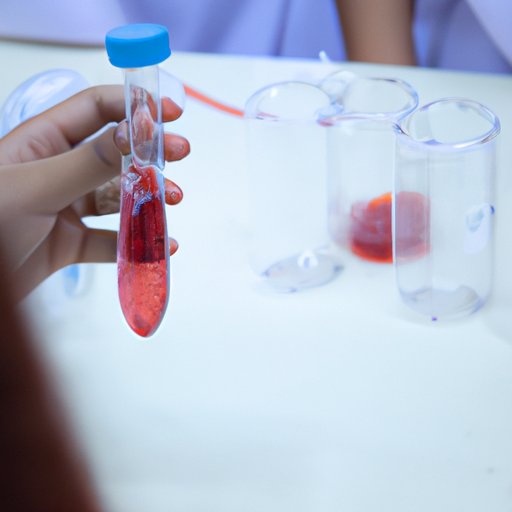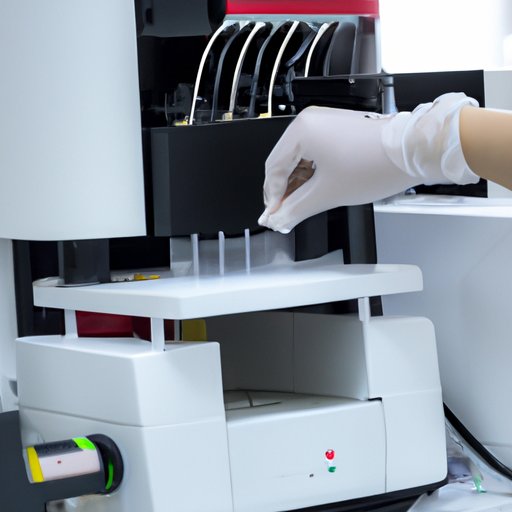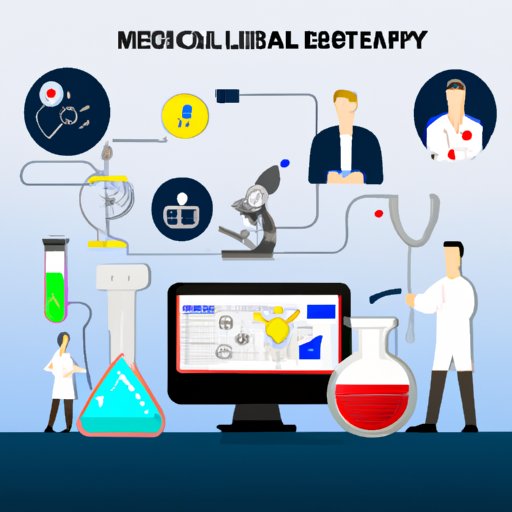
Introduction to Medical Lab Science
Medical lab science is a vital component of healthcare. It is a diagnostic-based specialty that focuses on providing important information about the health of patients by examining bodily fluids, tissues, and cells. Medical lab scientists have an integral role in helping medical professionals diagnose, treat, and prevent diseases.
Overview of the Field
Medical lab science is a rapidly growing field as technological advances enable medical lab scientists to provide increasingly accurate and timely results. As a result, the demand for qualified professionals has been steadily increasing. According to the Bureau of Labor Statistics, the job outlook for medical and clinical laboratory technologists and technicians is expected to grow 11% from 2019 to 2029, much faster than the average for all occupations.
Exploring the Career Paths
Medical lab scientists may work in a variety of settings, including hospitals, clinics, research laboratories, public health organizations, and private diagnostic labs. Their responsibilities vary depending on the type of facility they work for and the type of tests they are performing. Common duties include conducting laboratory tests, analyzing test results, and preparing reports.
A Day in the Life of a Medical Lab Scientist
Most medical lab scientists work full time, and their days typically involve collecting samples, running tests, and interpreting results. They may also be responsible for maintaining laboratory equipment, keeping records, and troubleshooting any issues that arise. In addition, medical lab scientists often interact with patients, providing them with information about the tests they are undergoing and answering any questions they may have.
The Education and Training Required for Medical Lab Science
Medical lab scientists must possess a broad knowledge base and be proficient in a range of scientific techniques and procedures. Most states require medical lab scientists to hold at least a bachelor’s degree in medical laboratory science or a related field. Additionally, many employers prefer to hire candidates who have completed a formal clinical training program. In some cases, certification may also be required.

The Role of Technology in Medical Lab Science
Technology plays an increasingly important role in medical lab science. Automation and robotics are being used to streamline workflows, improve accuracy, and reduce turnaround times. Digital record keeping is also becoming commonplace, allowing medical lab scientists to access patient data quickly and easily. This helps ensure that results are accurately tracked and reported.

Current Challenges Facing Medical Lab Scientists
Despite the advances in technology, medical lab scientists face several challenges. One major challenge is the shortage of qualified professionals. According to a study by the American Society for Clinical Laboratory Science, the number of medical lab scientists is declining due to increased workloads, competition for jobs, and lack of sufficient training programs. Additionally, as patient care becomes more complex, medical lab scientists must be able to analyze and interpret increasingly sophisticated data.
The Impact of Medical Lab Science on Patient Care
Medical lab science has a significant impact on patient care. Accurate and timely diagnosis is essential for effective treatment, and medical lab scientists play an important role in ensuring this. By providing fast and accurate results, medical lab scientists can help ensure that patients receive the best possible care. Additionally, medical lab scientists are often consulted on treatment plans, giving them the opportunity to provide valuable input into patient care decisions.
Conclusion
Medical lab science is an essential component of healthcare. It involves using specialized equipment and techniques to examine bodily fluids, tissues, and cells in order to provide medical professionals with the information they need to diagnose, treat, and prevent diseases. Medical lab scientists must possess a wide range of knowledge and skills, and complete rigorous educational and training requirements. The profession is facing various challenges, such as the shortage of qualified professionals and the increasing complexity of patient care. However, the advances in technology are helping to make the job of a medical lab scientist easier and more efficient. Ultimately, medical lab science plays an important role in improving patient care by enabling medical professionals to make more accurate diagnoses and provide faster treatment response times.
(Note: Is this article not meeting your expectations? Do you have knowledge or insights to share? Unlock new opportunities and expand your reach by joining our authors team. Click Registration to join us and share your expertise with our readers.)
